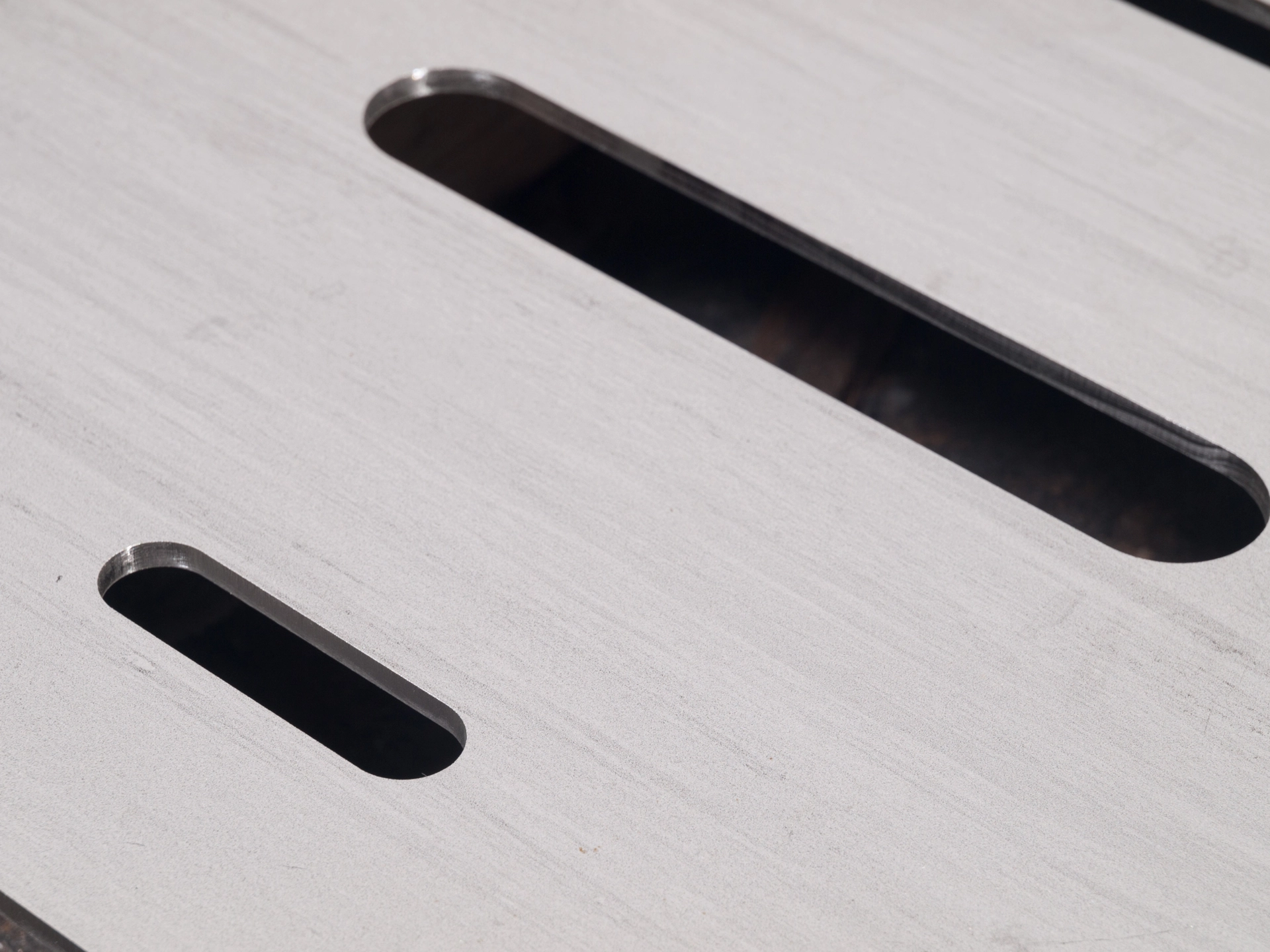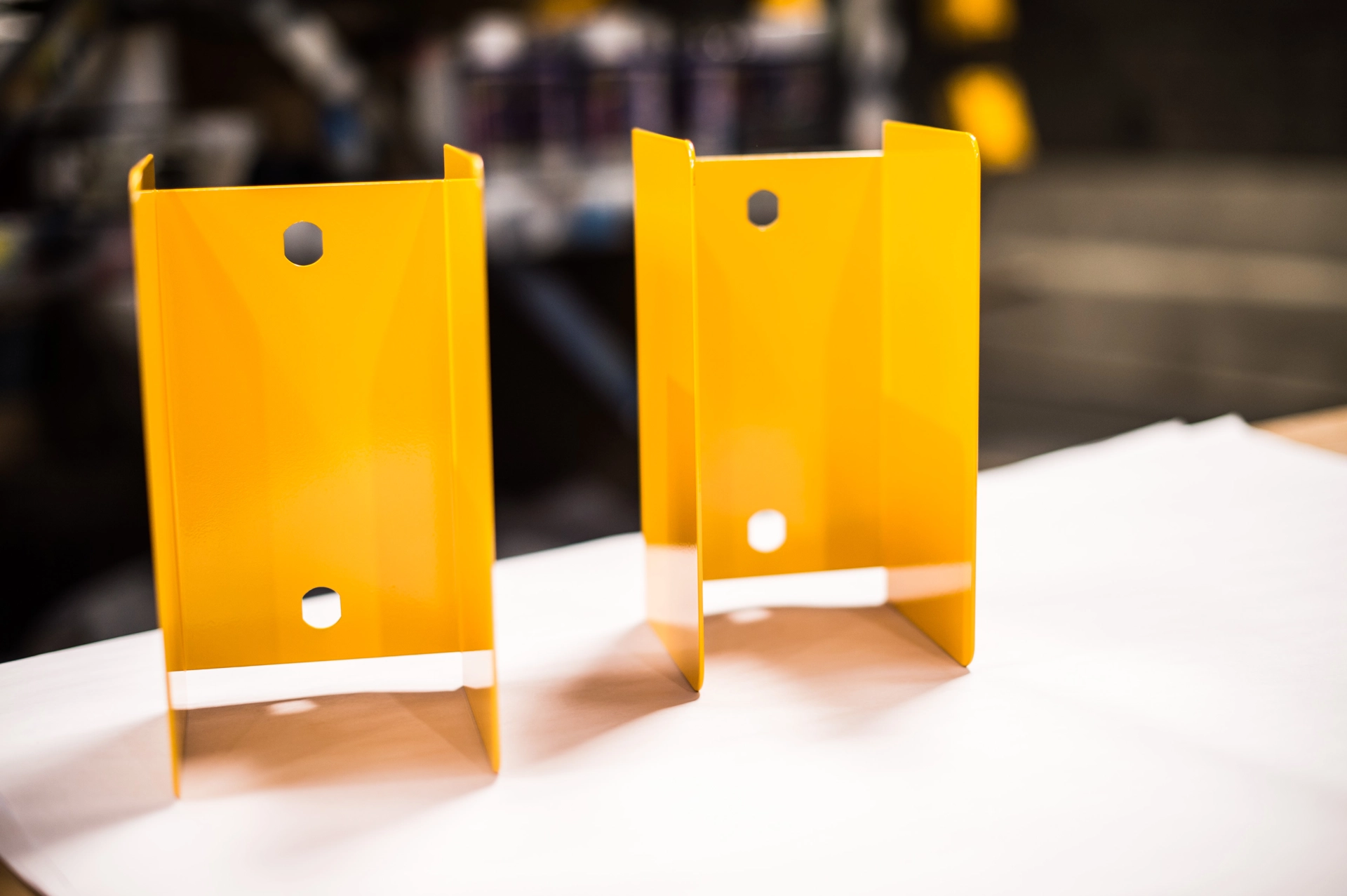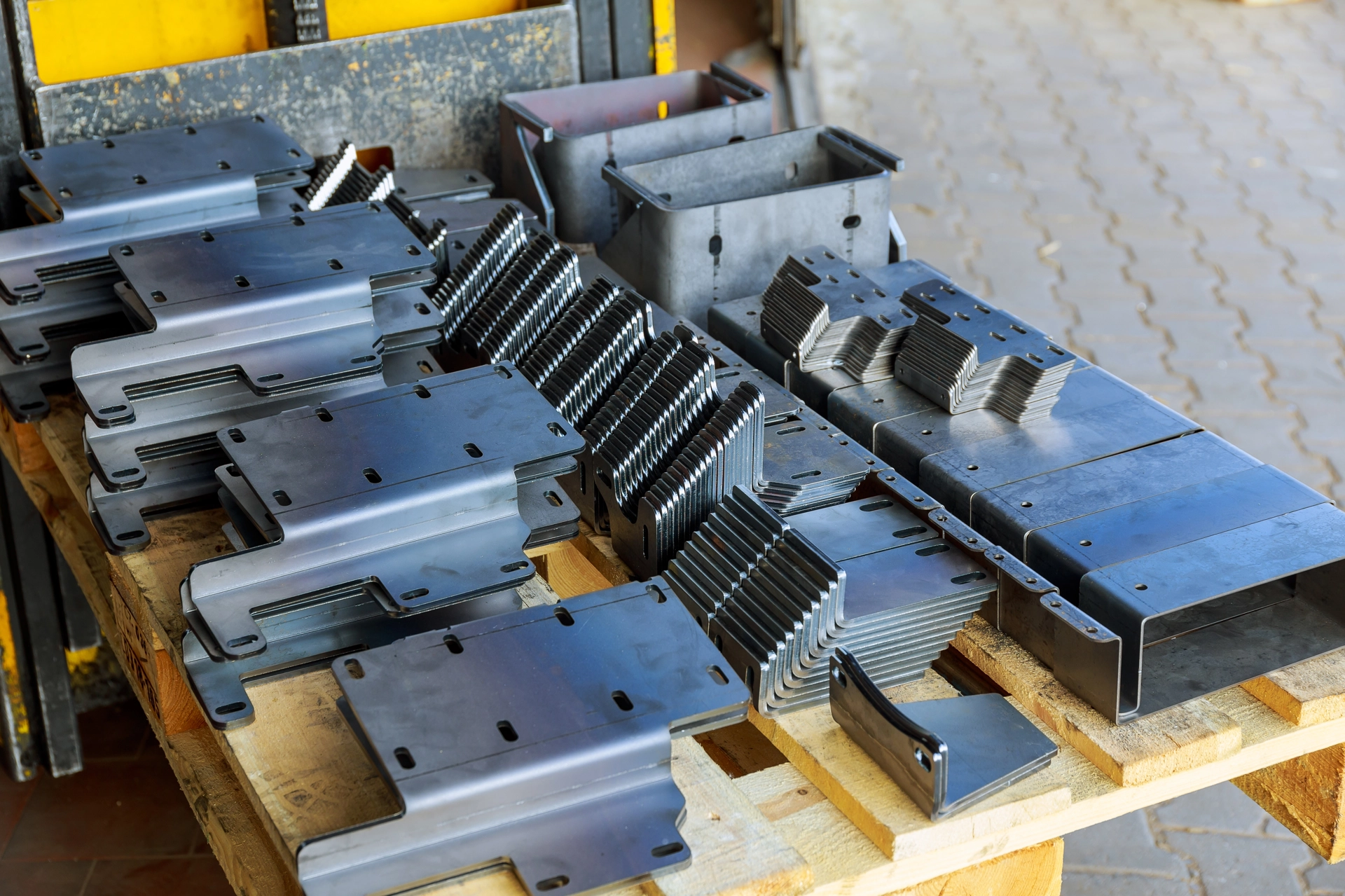How to Prevent Rust on Laser Cut Parts

Laser cutting is a precise and efficient method for creating custom metal parts, but one common challenge that arises after the cutting process is rust prevention. Rust can compromise the integrity, appearance, and functionality of your metal components. In this guide, we'll explore effective strategies to keep your laser cut parts rust-free, ensuring they maintain their quality and performance over time.
Understanding Rust Formation
Before diving into prevention methods, it's crucial to understand what causes rust. Rust forms when iron or steel is exposed to oxygen and moisture, resulting in iron oxide. This chemical reaction can be accelerated by factors like salt, acids, or other corrosive substances in the environment.
Choosing the Right Material
The first step in rust prevention begins with material selection. At Fabworks, we offer a range of materials for our laser cutting service, including options that are naturally resistant to rust:
- Stainless Steel: Our 304-2B stainless steel is an excellent choice for projects requiring high corrosion resistance. It contains chromium, which forms a protective oxide layer, making it highly resistant to rust and ideal for applications in harsh environments.
- Aluminum: We offer several aluminum alloys (5052-H32, 6061-T6, and 7075-T6) that are naturally corrosion-resistant. Aluminum forms a thin oxide layer when exposed to air, protecting it from further oxidation.
If your project requires the use of mild steel or other rust-prone materials, don't worry – there are still plenty of ways to protect your parts post-production.

Surface Treatments and Coatings
After laser cutting, several surface treatments can be applied to protect your metal parts:
- Powder Coating: Fabworks offers a comprehensive powder coating service that not only adds color to your parts but also provides excellent protection against rust. Our powder coating process creates a hard finish that is tougher than conventional paint, offering superior resistance to chemicals, corrosion, and weather.
- Oil-Based Coatings: For temporary protection, especially during shipping and storage, a light coat of oil can be applied to the metal surface. This creates a barrier against moisture and oxygen.
- Paint: While not a service we directly offer, painting your laser cut parts can provide both aesthetic appeal and rust protection. Ensure the surface is clean and properly primed before painting for the best results.
- Chemical Treatments: Phosphating or bluing are chemical processes that can be applied to steel to improve its corrosion resistance. These treatments are typically done by specialized finishing companies.

Design Considerations for Rust Prevention
When designing your parts for laser cutting, consider these tips to minimize rust potential:
- Avoid Water Traps: Design parts with proper drainage to prevent water accumulation. Standing water is a primary culprit in rust formation.
- Ventilation: If your part will be used in an enclosure, include ventilation holes to allow moisture to escape.
- Material Thickness: In some cases, using slightly thicker material can provide a longer lifespan in corrosive environments, as it takes longer for rust to compromise the part's integrity.
Post-Production Care
After receiving your laser cut parts from Fabworks, proper handling and storage are crucial:
- Keep It Dry: Store your parts in a dry environment. If possible, use desiccants in storage containers to absorb moisture.
- Handle with Care: Wear gloves when handling bare metal parts to avoid transferring oils and moisture from your skin.
- Regular Maintenance: For parts in use, regular cleaning and reapplication of protective coatings can significantly extend their lifespan.

Frequently Asked Questions:
Which metals are most prone to rusting after laser cutting? Iron and steel alloys are most susceptible to rust. Mild steel, which is commonly used in laser cutting projects, is particularly prone to rusting. Stainless steel, while more resistant, can still rust under certain conditions.
Can aluminum laser cut parts rust? Aluminum doesn't rust in the traditional sense, but it can corrode. However, aluminum forms a natural oxide layer that protects it from further corrosion, making it highly resistant to rust-like damage.
What's the best way to store laser cut metal parts to prevent rust? Store parts in a dry environment with low humidity. Using desiccants in storage containers can help absorb excess moisture. For long-term storage, consider applying a light coat of oil or a rust inhibitor to bare metal surfaces.
Can I remove rust from laser cut parts if it has already formed? Yes, light surface rust can often be removed using mechanical methods like sanding or wire brushing, or chemical rust removers. However, prevention is always better than cure, as removing rust may affect the part's dimensions or surface finish.
How do Fabworks' material options contribute to rust prevention? We offer several rust-resistant materials:
- 304-2B Stainless Steel: Highly resistant to corrosion and rust
- Aluminum alloys (5052-H32, 6061-T6, 7075-T6): Naturally corrosion-resistant
- For mild steel parts, we recommend considering our powder coating service for added protection
How quickly can rust form on untreated laser cut steel parts? The rate of rust formation can vary widely depending on environmental conditions. In highly humid or salty environments, rust can start forming within hours. In more controlled environments, it may take days or weeks. It's best to apply protective measures as soon as possible after laser cutting.
Conclusion
Preventing rust on laser cut metal parts involves a combination of smart material selection, appropriate design, protective coatings, and proper care. By partnering with Fabworks for your laser cutting needs, you gain access to high-quality materials and finishing options that can significantly enhance your parts' resistance to rust.
Remember, while some level of maintenance may always be necessary for certain applications, starting with the right material and finish can drastically reduce the ongoing effort required to keep your parts in top condition.
For more information on our laser cutting services, material options, or powder coating capabilities, don't hesitate to reach out to our team. We're here to help ensure your parts not only meet your design specifications but also stand the test of time.
How to Export a STEP in Onshape
This is a quick guide on how to export a STEP file in Onshape for laser cutting.
Fast Track Your Project .
Seamless process, unparalleled precision, unbeatable speed. Turn your design into reality by beginning your journey with us today.
or drag and drop
.STEP / .STP up to 25MB
Your file are safe, secure and retain all intellectual rights.